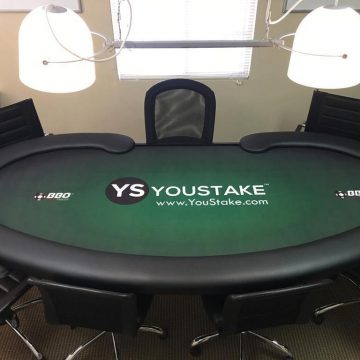
YouStake CEO Frank DeGeorge filed suit against the US Securities and Exchange Commission and its chairman, Jay Clayton, asking for the SEC’s investigation to be dropped. The filing was Case5:17CV00065 in the US District Court of the Western District of Virginia.
The YouStake lawsuit was filed on July 7, 2017. Frank DeGeorge seeks a declaratory judgment on the ongoing SEC probe, which became in April 2016. The online stakes service complied with the investigation, providing “thousands of pages of records”.
DeGeorge also gave testimony in March 2017.
No SEC Charges Against YouStake
In their legal brief, YouStake’s lawyers claim the SEC has never been able to substantiate charges. No charges have been filed in the case, while compliance has cost YouStake “hundreds of thousands of dollars”.
Thus, Frank DeGeorge believes the SEC probe should be dropped.
The lawsuit claims “It has become increasingly evident that the SEC is unable to identify any specific statute or regulation contravened by YouStake’s operations.”
Because it stopped operations earlier this year, YouStake has lost considerable revenues over the months. The site raised no stakes for the 2017 World Series of Poker, the poker tournament which includes over 70 events over an 8-week period. Missing the biggest event of the year placed a major onus on the company.
SEC Probe Hurt Investment Relations
YouStake is only two years old, so its owners consider the business a startup company. Due to the ongoing investigation and lack of operations, the company’s founders have been unable to woo potential investors needed to ramp up business operations.
Frank DeGeorge argues the SEC does not have purview over YouStake, because the business does not sell securities. YouStake’s lawyers say they sent a letter to Jay Clayton, asking for assurances that no enforcement action would be taken. After two months with no reply, the lawyers filed suit in a US District Court to end the investigation.
YouStake Online Poker Staking Site
YouStake launched in 2015 as a online platform for investors to stake players in various poker tournaments and eSports competitions. The launch came after Nevada’s legislature made it legal for a second party to stake a person in online gaming events.
Players have found YouStake to be a convenient way to get funding early in their gaming careers. Some successful poker players acts as buyers or sellers — raising stakes for events while also investing in other deserving young gamblers.
Purpose of the YouStake Lawsuit
YouStake is asking the court to detemine whether securities are being sold on their website. If the court determines no securities are involved, then it will rule the SEC investigation should be dropped.
Even if the court rules against YouStake, the staking site is asking for the judge to determine the regulatory framework being used by the SEC. In essence, the filing asks for the judge to determine whether YouStake’s business operations are legal, and what the ground rules of the investigation would be. Frank DeGeorge and his investors no longer want to be left in the dark on the probe’s purpose.
What Is a Security?
Readers might be wondering what the definition of a “security” is. Investopedia’s definition says a security is a “fungible, negotiable financial instrument that holds some type of monetary value.”
“It represents an ownership position in a publicly-traded corporation (via stock), a creditor relationship with a governmental body or a corporation (represented by owning that entity’s bond), or rights to ownership as represented by an option.”
The definition goes on to say there are two types of security: equities and debts. An equity security is an ownership interest held by shareholders, both in common stock and preferred stock. A debt security is money that is borrowed and must be repaid, with terms like the size of the loan, interest rate, and either maturity or renewal date.
YouStake therefore is asking the district court judge in Virginia whether poker and eSports staking deals are a form of debt security. If the answer to that question is “Yes”, then YouStake might have to end operations. If the answer is “No”, then YouStake should have some legal clarity and should be able to move ahead with investment deals — both for the business itself and for individual poker players.















